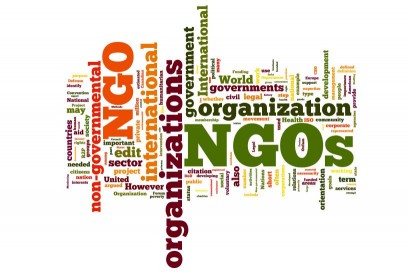Industry Guru speaks out!

On Uday ji, he is like an elder brother to me (Anna, in my mother language). He is source of inspiration and a role model to me. I am eager to meet and learn from him.
I come from a small town in south India, in the State of Karnataka. I am basically a civil engineer with a master’s in environmental engineering from the Indian Institute of Technology Guwahati (IIT Guwahati) and have earned my PhD on the subject Ship Recycling from the Indian Institute of Technology Bombay (IIT Bombay). I came to know that I was one of the first researchers to receive a Doctorate degree in Ship Recycling based on research on Alang. For the past seven years, I am holding the position of Lead Coordinator for the Sustainable Ship and Offshore Recycling Program (SSORP) and Heading the Research and Development Division of the World’s Largest Buyer of Ships, GMS. In addition, I am a lead auditor for Health, Safety, Quality and Environmental management systems and empanelled with several classification societies as lead auditor. In 2018, I became a Course Director for the first-of-its-kind 12-week long online course on ship recycling offered by the Lloyd’s Maritime Academy London. I am also an approved hazardous material expert from DNV and conduct IHM surveys onboard ships. I am an Author of the first Green handbook on Safe and Environmentally Sound Ship recycling (the e-book is available on Amazon for download).
Well, my educational qualification till my masters were not directly/indirectly associated with any of the shipping/marine subjects, therefore, I was not aware of ship recycling activities, and so had never thought about working in ship recycling. However, it was during my PhD tenure, that I heard about the Ship Recycling activities and took it as my subject of specialization. Having spent six years researching Ship Recycling activities in Alang, I had an urge to do something for the ship recycling sector. Moreover, it was during my academic years when the Hong Kong Convention for Ship Recycling was introduced (15 May 2009) and then the European Parliament as well as the Council of the European Union adopted the Ship Recycling Regulation (EU SRR) on 20 November 2013. I was able to deeply understand the pros and cons of Ship Recycling activities. Moreover, after joining GMS, I did serval additional courses to further my knowledge. For example, I completed a diploma in Industrial Safety and became NEBOSH IGC certified professional. In addition, I became a qualified lead auditor from Bureau Veritas for ISO 9001:2015 and from the Indian Register of Quality Services (IRQS) for OHSAS 18001:2007. (Currently, ISO 45001). I am also an approved HazMat Expert from DNVGL (Now, DNV).
As of today, I have surveyed more than 75 vessels for Inventory of Hazardous Materials and completed compliance monitoring for 102 vessels (including offshore units) in Alang and Turkey. Also, my team has conducted more than 240 training sessions in Alang, Chittagong, Gadani and directly trained over 4000 workers on Health Safety and Environmental aspects.
There is no direct answer to this question as shipping is traditionally unpredictable. It’s even difficult to predict the second half of 2022 in the present global scenario. It is difficult to project because as the market was bullish with high prices for scrap (which were last seen only in 2008 during the great recession period) and suddenly from few last week’s market slowed down and scrap prices dropped up to USD $100 per ton in all subcontinent recycling market. The current war between Russia and Ukraine and many other micro level factors make it difficult to predict. However, on the long term, its certain that global ship recycling volumes are projected to nearly double by 2028 and quadruple by 2033. The Hong Kong Convention is expected by 2023 and should come to effect by 2025. The perfect scenario would be ZERO fatal accidents and ZERO environmental pollution across all recycling destinations in the world followed by acknowledgement by Non-Governmental Organizations for all types of recycling methods in the world.
(a) Ship Owners – Shipowners are one of the major stakeholders and need to develop their own Ship Recycling Policies. They should have a comprehensive plan for their fleets as well as their recycling activity. Shipowners must have in place or prepare a comprehensive system to ensure the Inventory of Hazardous Materials (IHM) available and up to date on each vessel to give to the ship recycling yard before vessel is sent for recycling. As practical as possible, the hazardous materials identified onboard should be removed by the shipowners before the vessel is delivered for recycling. They should encourage research and development in ship recycling activities to improve the industry in all cordons.
(b) Governments – Uniform regulation for ship recycling needs to be applied by the Government. Governmental institutions need to develop proper infrastructure that can sustain the industrial needs. Improving the existing and introducing new Social Welfare schemes for ship recycling yard workers. Ensure proper Downstream waste management infrastructure available for the industry.
(c) Yards:
(d) Steel Industry – The steel industry must find a more sustainable and responsible means of production. RR&D is important as is being able to maintain uniform production quality.. Also, a strong and stable system that can keep a track of market demands and supply, so ensuring a sustainable growth of the industry as well as associated industries.
(e) Banks and Financiers – Banks should check and monitor (if required) the ship recycling policy of ship owners as well as ship recyclers. They should check if shipowners are meeting ESG compliance. More banks should adopt the Poseidon Principles. Moreover, they can offer incentives for sustainable ship recycling activities to ship owners as well as to ship recycling yards.
(f) NGO's – NGOs need to take a more pragmatic approach towards the industry. They should inculcate positive approach towards ship recycling irrespective of type of recycling. They should give suggestions and solutions to the existing issues instead of “naming and shaming”, encourage positive changes in the industry, highlight pros and cons of the industry, instead of focussing on cons only. NGOs should seek to better understand ship recycling practices ‘on the ground’ and suggest positive changes they consider to be required. In my opinion, it’s not about the method of recycling, it’s all about how a given vessel was safely recycled irrespective of recycling destination. There are good recycling yards and there are bad recycling yards active in all type of recycling methods.


(g) Media – As the fourth estate, the media must play a role in holding the industry to account but must also be fair and independent. One-sided reporting helps no one and fails to provide the whole picture. More well-researched, serious, technically-savvy, balanced reporting is needed. Propaganda dressed up as news and feed to content-hungry news websites does little to educate and inform. Ship recycling is a serious business and deserves professional editorial coverage.